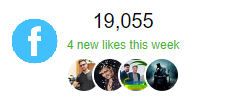The Next Web Publishes Storyblok-Sponsored Hit Piece on WordPress – WP Tavern
Last week, under its news section, The Next Web published what could only be described as a hit piece: Developers hate WordPress — and so should marketers. The claim was that, despite its current 40% market share, folks should start looking at alternatives for a better experience.
The first developer interviewed for this piece was the CEO of Storyblok, Dominik Angerer. Storyblok is a headless CMS, a competitor to WordPress.
The second person interviewed for the article was Doeke Leeuwis, the founder and technical director for Story of AMS. The agency focuses on headless eCommerce. What is one of the three platforms it uses? If you guessed Storyblok, you would have gotten it right. Bonus points if you predicted it was listed first of the three in their marketing material.
The third developer interviewed was Mitchel van Bever, who also works for Story of AMS. The company has been featured multiple times on the Storyblok blog and is a featured case study.
Are you starting to see a pattern yet?
If you read through the rest of the article, you will note that the post was sponsored by Storyblok. At least they were honest about it.
Somehow I believe most readers would have skipped the article if that was posted before the content.
It is easy to find developers who dislike WordPress. But, you lose credibility when writing a piece that features interviewees who are either directly sponsoring or benefitting from the story.
The centerpiece for the entire story hinged on the 2019 and 2020 Stack Overflow annual developer survey. There is a lot to glean from the data provided by over 65,000 workers in the field. However, the article merely focused on a single point: WordPress was voted the most dreaded language or technology at 67% in the last year. Everything else centered on what those with a vested interest in Storyblok had to say.
We could talk about scalability, but with WordPress.com as a prime example of running the WordPress software at scale, do we really need to?
We could talk about flexibility, but when WordPress has more free third-party plugins (59,000+) than Storyblok has in total live websites (500+ according to BuiltWith), is it really worth diving into?
As a writer in the WordPress sphere, you may think I am entirely biased. That is at least partially true. However, I have worked with multiple systems. Laravel is one of my favorites, but its beautiful architecture does not always translate to quickly getting a job done in the same way as WordPress. I have helped friends and family launch projects on several non-WordPress services. It all depends on what the best tool for the job is.
I have even created my own custom CMS for my personal blog. I felt like WordPress was overkill for what I needed. It is OK to use another tool even when you typically prefer working with something else. My custom blogging system was built just for me, but it now runs on two websites. I had another developer friend crazy enough to try it.
My love for WordPress is not absolute. It is not unconditional.
But I still love it. There are 1,000s of others who love working with it too, and these developers are more likely to tell you what the actual issues with the platform are. We can criticize it honestly because we are down in the trenches, working with the platform every day. We know it is not always the ideal programming experience. We know it has some legacy baggage. Despite its warts, we have built something that most others only dream of doing. We have created a vast community.
If you thought it was all about who had the shiniest code, you would be wrong.
It is about business competitors willing to communicate and even help others in their space.
It is about Five for the Future, a program where WordPress-related companies contribute to free software.
It is about support forum volunteers lending a helping hand.
It is about the 100s of folks on the Make WordPress teams who contribute to various aspects of the project, everything from code reviews to translations.
It is about sharing a drink with a years-long friend you just met IRL for the first time at a WordCamp, albeit mostly virtual for the last couple of years.
It is about the podcasts that people produce for the love of the platform and its surrounding projects.
It is about quitting your nine-to-five to launch a new business as a plugin developer.
It is about taking part in a movement that has allowed millions to publish on the web.
No, not every developer who participates in the annual Stack Overflow survey loves WordPress. Most of them may dread working with the platform, and that trend may very well continue. What we have is bigger. WordPress is its community.
This smells like just another hit piece from a WordPress competitor like we have seen before. At least some of the Wix videos were funny (come on, you know you laughed at at least one or two of them), and folks got free headphones from the deal. This Storyblok-sponsored post just leaves a sour taste.
Like my grandma — probably everyone’s grandma — used to say, “You catch more flies with honey.” This was an opportunity to sell potential users on Storyblok’s features. Maybe bashing competitors brings traffic, but I doubt it brings any goodwill or long-lasting benefits.
This is a hit piece no doubt. But is it also a wake up call? Is there a chance, however small, however unfavourable, that WordPress the software might… just might… be loosing its self awareness? If we recognise even an element of possibility in that thought, then a moment of objective reflection at the very least of our belief system for WordPress is a worthwhile exercise. Why? Because we love WordPress – the software, the community and journey so far.
WordPress seems to be one of the most self-reflective communities I have ever been involved in. We are constantly thinking and rethinking about how to improve the software. The Gutenberg project — love it or hate it — is one massive inner look and shift based on honesty about the future of the aging platform.
It’s definitely a worthwhile exercise and one we should continue doing.
No matter that I have a very different view to yours of the Gutenberg project and the future of WordPress, I love your writing Justin. I read your articles top to bottom. And – you have a great sense of humour. I lol’d when you said it’s partially true that you are entirely biased.
We are united in love for the platform. We all have that at least!
I don’t know if that post should be taken very seriously. When I first saw it, I was like “what the??” But then I saw it was basically a very mean paid ad. On the one hand, it may have caused some damage to WP’s reputation. On the other hand, WP’s market share keeps growing for many reasons and Storyblok is barely a blip on the market share landscape.
BTW, in conversations I’ve been having recently with people from the Jamstack community (Storyblok can be considered part of that ecosystem), I’m seeing that the discourse is shifting away from “WP sucks! Boooo WP!” to “Actually, WP is a top-notch CMS that can’t be ignored, and we need to see how we can work with it.”
WordPress is large yes, but a very very very large chunk of those websites are made by hobbyists that made their own personal websites. While a headless CMS in statistics doesnt might seem as large by far. It is used in far more professional applications which are reliant on being built on a far more solid platform. Storyblok, Sanity, Contentful etc are CMS systems you find in larger projects that need the ability to scale up fairly quickly and have higher requirements in terms of security etc. WordPress is just very easy to set up, and that is currently its saving grace. But maintaining it is a different story.
I would date to say that 80% of the wordpress websites out there are just website made by non developers.
l love WordPress plugins,but for development purposes l prefer laravel
The whole Gutenberg rollout story left many devs behind, wondering what is going on and what/where their future would be. So theses articles will find their audience and also some understanding.
The main opportunity here is not complaining about a “omg, hit piece” but to take them as wakeup calls and understand what went wrong and draw conclusions for future development and direction of WordPress.
WordPress was voted the as one of the most dreaded platforms or technologies long before Gutenberg landed. See 2015, 2016, 2017, 2018. That data should not be overlooked, but it is only one piece of a larger whole.
This is also not “complaining” about a hit piece. It is about journalistic integrity in our field. Someone needed to call TNW on this.
If I am being completely honest, I have to say that I agree with that “hit piece” article 100%. I am not a developer, but merely a simple WordPress user, having to deal with WP on a daily basis. And I absolutely hate it.
WordPress – to me – is such a massive mess. The editing experience is absolutely horrible, and even third-party tools that try to solve that problem (so-called site builders like Elementor) don’t really help and make every site slow and sluggish.
Every simple thing that should be built into a modern website building tool requires a plugin. A lot of the plugins mess everything up. And you need tons of those.
Gutenberg was a step in the right direction, but it has been in extremely slow development for years with almost no real progress from a user’s perspective. When was full site editing first announced? Years ago. And it’s still not fully here and not nearly as capable as any of the el-cheapo site builders out there.
I am struggling every single day to get the layout of posts and pages show up the same way as they do on the backend, and even on the backend it’s a struggle to get simple layouts that are consistent. One has to constantly tweak a bazillion parameters of third party blocks, themes and plugins, and it still doesn’t work. It takes more time to maintain and “design” than it takes to actually get your content out.
I will never understand how WordPress ever got so popular. Some will argue “it’s the ecosystem, stupid” and I will respond that this ecosystem only exists because WordPress itself is so utterly bad that third parties need to enhance it with plugins and block libraries.
So whether that article was a hit piece or not, it was 100% right. WordPress really needs to rethink itself and take some cues from things like Webflow.
I appreciate your point of view here. As a developer, I’ve never used WordPress without adding my own code.
The Gutenberg project is making inroads with the editor/front-end disconnect you’re experiencing, especially with the 5.8 release and coalescing around theme.json as a standard approach to theming. Before this, it was exclusively up to the theme developer on how to handle styling in the editor vs the front-end. While this is still mostly the case in practice, I expect to start seeing a more consistent user experience with regards to that back-end/front-end disconnect.
WordPress is powering over 40% of the web because of its flexibility and extensibility, which is a double-edged sword. It does empower people to put up their own websites fairly easily, but that doesn’t mean that you can “design” it to look exactly the way you want without coding or a page builder. Gutenberg is eroding that distinction, but it will take a while if we want to do it well.
Storyblok is hardly competing in the same space. It’s a headless CMS, meaning you’d have to know how to code to build the front-end yourself or have someone else build it. It really is apples to oranges.
Yes it is terrible, but terrible like they say democracy is terrible: “the worst form of government, except for all the others”. Having worked with some of the other CMSs myself and worked with clients who had to use other CMSs, WP is definitely less terrible. The tragedy of WP was that it was making good progress at not being terrible.
Alas, WP got derailed twice. First Customizer grabbed most of the attention that should have been directed at making WP less terrible. Not only was it a major distraction, but it didn’t even get finished before another, bigger distraction arrived. With Gutenberg WP development really ran off the rails. Virtually nobody is now working on making WP less terrible. And Gutenberg has made WP more terrible because it expects the entire WP community to become beta testers. It is far from being ready for release into a production environment, but here we are.
The best way to make WP not terrible is to Disable Gutenberg and scour the internet for plugins and patches. I should not need to have 67 plugins installed, but I need to. Many of these plugins accomplish simple functions that should be easily achieved via a preference setting or a button to provide a simple affordable gift. For example, to set the default posts display to just show published posts, or to add custom style buttons to the posts editor, or a button to duplicate a post.
“Affordable gift” should be “affordance.” Darn smart ass auto corrector. And no edit button here. Another missing affordance.
TNW and many other online publications probably don’t feel bound by old-school journalistic standards. With the decline of newspapers, etc., it’s possible they don’t even know what those standards are.
But if you’re going to run a sponsored post, say so right from the beginning. Don’t make it look like it’s just another piece of content. And don’t wait until the very end of the post to casually mention who sponsored it. You may have gained some pageviews, but you also lost the trust of your readers.
As for the post itself, I had never heard of Storyblock before this – so, mission accomplished on their end. Marketing tactics like this will ensure I remember them, and never use their product.
Right, it looks like an interesting product to me but this way of getting attention makes me question the quality of their leadership. Show me the nicest boat and still I don’t want a ride if the captain is acting strange.
Yeah – that article did Storyblock zero favours, and the integrity of those interviewed is highly questionable. Like you said, it’s on my list of avoid at all costs software!
I’ve used Joomla (years ago), Laravel (ugh!) and Yii (Great!), and for most small business websites, IMHO, nothing beats WordPress.
Most developers also hate PHP — but we still use it. PHP is ugly, frustrating, and in some ways outdated, but it’s also practical and well-supported and gets the job done.
As a dev I also find WordPress to also be frustrating. But there’s a bunch of things an advanced developer can do to make it much less frustrating. We use Sage 10, which adds Laravel Blade to PHP, SASS, and a controller model approach. We use Bedrock which gives the folder structure a modern update. We use a modern CI/CD workflow. These things smooth the development process considerably.
For site editors, the complains I see about the admin screen are generally due to poor development. Many developers put zero effort into understanding staff editorial workflow, and as a result the default editor experience is frustrating. Every project has different editorial needs, so on our projects we spend time customizing the admin side.
Most of the stuff in that StoryBlok hit piece was pure fiction. Separating frontend dev from backend dev will not remove the need for your teams to coordinate. A headless WordPress will not magically make the editing experience better. Headless builds are not cheaper. There’s a time and place for headless, it has specific use-cases, but it’s not a magic bullet.
I was very disappointed in the article when I first read it; I’m disgusted now that I see it was a paid hit.
As a long term WordPress user and former front-end developer. I can find myself in the statements of many developers that WordPress became a relic which you are criticizing in an extremely cheap way. Yeah it is used a lot on the web, yes it has a huge community. But it just doesnt fit well in the current environment on the web. To make it do modern things, you need to use so many plugins. You call it a positive that there are so many plugins available. I all it a negative, it is not really curated, there is no quality control and you dont always know what you are gonna get. In the end a vast majority of WordPress websites are not secure. I receive reports daily from Wordfence about hack attemps, I receive daily news about new exploits for these WordPress plugins and I have helped so many developers to fix hacked WordPress websites. This shift in web technology made me from recommending WordPress 3 years ago for small to mid sized businesses to now going headless with yes tools such as Storyblok, Contentful, Sanity etc. But this is the issue with your article. You compare WordPress which is a do it all directly to a pure CMS system which doesn’t manage the frontend, frontend developers in WordPress often build through plugins etc. The power of going headless, is having a static website being populated by dynamic content running on extremely fast servers and loading it in from a CDN. The power of headless is being able to reuse that content on multiple platforms and in the end have the ability to save on development costs. Yeah the latter is not for every business. But the web became a much more complex world, users became more demanding and especially in the realm of e-commerce. I simply cannot recommend WordPress anymore, and yeah I still could make money of it. But I want to give my customers a better product, not directly going for easy money and being stuck troubleshooting long term.
I have the feeling that long terms WordPress supporters never kept up with the times and are stuck in 2010 when WordPress was everything on the web. When online theme shops such as themeforest exploded. So yeah I actually did agree with the TNW article. Even if it could be viewed as biased, so could your piece.
The Next Web hasn’t been a good source for some time, but stooping this low… that’s a permablock from me. Sites that let companies bribe them to spam their readers on their platform deserve zero trust.
It’s a sponsored piece so not worth a response, IMHO. But I glad you did as it’s beautifully written 🙂
I’m not a developer but I understand Rinzero’s point of view. WordPress is a bit of a Franken-CMS. If Gutenberg is the future… I’m only 75% of my way through my how-the-f***-does-it-work journey. It shouldn’t be that hard to figure out (but it’s probably me).
Here’s the thing. I may never use Gutenberg. There are plenty of other options. Great ones too.
Rinzero says: “To make it do modern things, you need to use so many plugins.” But do you really? Of course not. What’s often lacking is strategy and best practice, and with WordPress you have a million ways to achieve them.
Your email address will not be published. Required fields are marked *
This site uses Akismet to reduce spam. Learn how your comment data is processed.
Enter your email address to subscribe to this blog and receive notifications of new posts by email.
Join 50,296 other subscribers
Proudly powered by WordPress.








